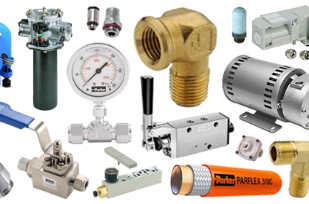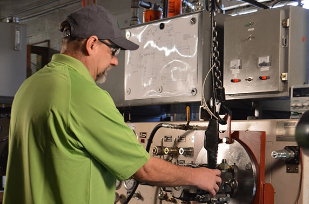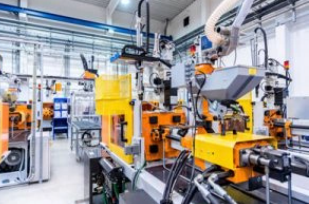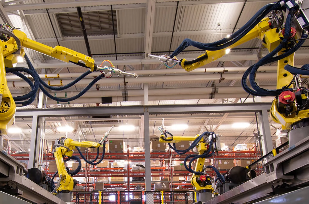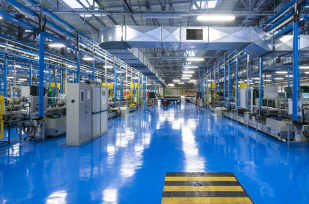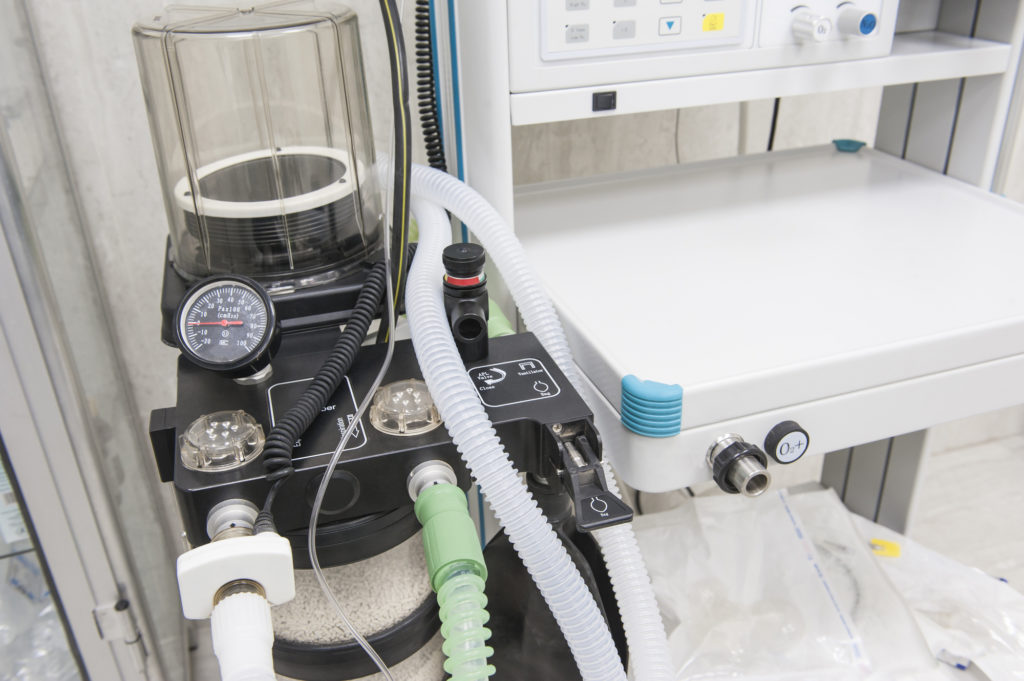
You’ve probably heard more about ventilators in the year 2020 than in any other year. What you might not know is that those crucial machines require medical air compressors to operate.
Compressed air is the unsung hero of the medical field, from life-saving ventilators to dental and surgical tools.
Medical offices use medical air compressors to power medical tools and even within their infrastructures. To understand these machines, we’ll talk about how they power the tools they do and how much they cost hospitals and medical offices.
Every medical office uses air compressors. The most well-known use of air compressors is for ventilators (which we’ve heard a lot about). But, there are many more uses for air compressors in the medical world.
Ventilators
In surgery, ventilators keep patients breathing. They are also used in ICU cases for patients with severe lung illnesses to assist their breathing.
When a person is under anesthesia, their breathing patterns may change or even stop breathing. To regulate a patients breathing, a ventilator is always used any time someone goes under anesthesia. For that reason, the anesthesiologist is in charge of putting patients on the ventilator.
In recent months, we’ve heard a lot about ventilator use in the ICU regarding Covid-19. Medical professionals use ventilators to support patients with any kind of lung illness, including influenza, COPD, lung cancer, or any other serious respiratory issues.
An air compressor for ventilators works by forcing clean air into a person’s airways and lungs. They also work to move carbon dioxide out of a person’s body, so it doesn’t become toxic.
Laboratories
Hospital laboratories need different air than the rest of the hospital to avoid contamination when testing. Because of that, designated air compressors send air only to the research and development areas. Air compressors for labs must be oil-free and properly filtrated.
Dental offices and small practices use similar air compressors to push out sanitized air in their buildings.
Hospital Air Ducts
Because hospitals see so many people, sick and healthy, the air throughout the building needs to be properly filtered. Medical grade air compressors ensure that the air forced through A/C units is dry, oil-free, and sanitary.
Having proper air filtration ensures the safety of patients and healthcare providers alike. Clean, dry air means everyone can breathe easy (with a mask on, of course).
Dentist Offices
Dentist offices use medical air compressors to power their tools and to sterilize the air. Dentists use air-powered tools to clean, polish, and drill. They also use compressed air to dry portions of the mouth while they work or clean.
Air-powered tools are cheaper and easier to maintain than electric tools, which is why they’re preferred by dentists and hygienists.
Medical Air Compressor Categories
Air compressors are necessary tools in the medical field. Depending on their use case, they fall into different categories. It’s important to determine what kind of medical air compressor you need to provide the best patient care and meet regulations.
Category 1
Air compressors in category 1 include those that power ventilators and respiratory machines. These machines have to function 100 percent of the time because the patient’s lives depend on them.
They have standby options in case of an interruption. Also, they are very user-friendly with clear power sources and alarms.
Category 2
These air compressors are also used for patient care but may experience minor downtime. So, air compressors in category 2 are for patient care that is not life-dependent. If one of these compressors were to experience downtime, it would not cause lasting harm.
Category 3
Air compressors in category 3 do not directly affect patient care. These air compressors might power certain tools used for patient care. But, if they experience downtime, it would not directly affect the patient’s health.
Category 4
Air compressors that do not affect patient care at all are in category 4. In this case, if they were to experience prolonged downtime, it would not affect patients at all.
Depending on how the medical facility uses certain air compressors, they must ensure that it meets the required category. Otherwise, healthcare offices risk major regulation violations and lawsuits.
All medical air compressors must operate quietly, so they don’t negatively affect patient care.
Oil-Free Air Compressors
Medical facilities typically use oil-free air compressors to create clean air. Air compressors used in construction use lubrication to ensure they continue functioning. However, in the medical world, that leaves too much room for contamination.
Oil-free air compressors exist in two forms: reciprocating and scroll compressors.
Oil-free reciprocating air compressors are category 3 compressors because their pistons sometimes overheat and cause shutdowns.
Oil-free scroll compressors, on the other hand, are more reliable due to their air-cooling technology that keeps the motor from overheating.
Banking Compressors
Hospitals often combine the use of several smaller compressors to meet their needs. This way, they can run as much or as little air-compressor power as they need. This is a way for hospitals to save money on running costs and still be able to meet high demands.
Cost of Medical-Grade Air Compressors
The cost of medical air compressors depends a lot on what kind of compressor it is and whether it’s portable or stationary.
Portable air compressors are on the cheaper side of the spectrum, and they cost around $800-$2,000.
Stationary air compressors cost more, which is no surprise because patient care is usually more reliant on them. Stationary air compressors are for ventilators and respiratory support in patients. For a stationary air compressor, expect to pay $11,000-$17,000.
Along with the initial cost of the air compressor, you must also budget for the maintenance costs associated with air compressors. Most hospitals have staff that maintains their air compressor systems.
RC Group Provides Quality Medical Air Compressors
RC Group stocks oil-free air compressors for all your needs. We are an authorized distributor for Gast non-lubricated air compressors.
For more information about what medical air compressors we carry, fill out this contact form, and someone will answer your questions shortly.

